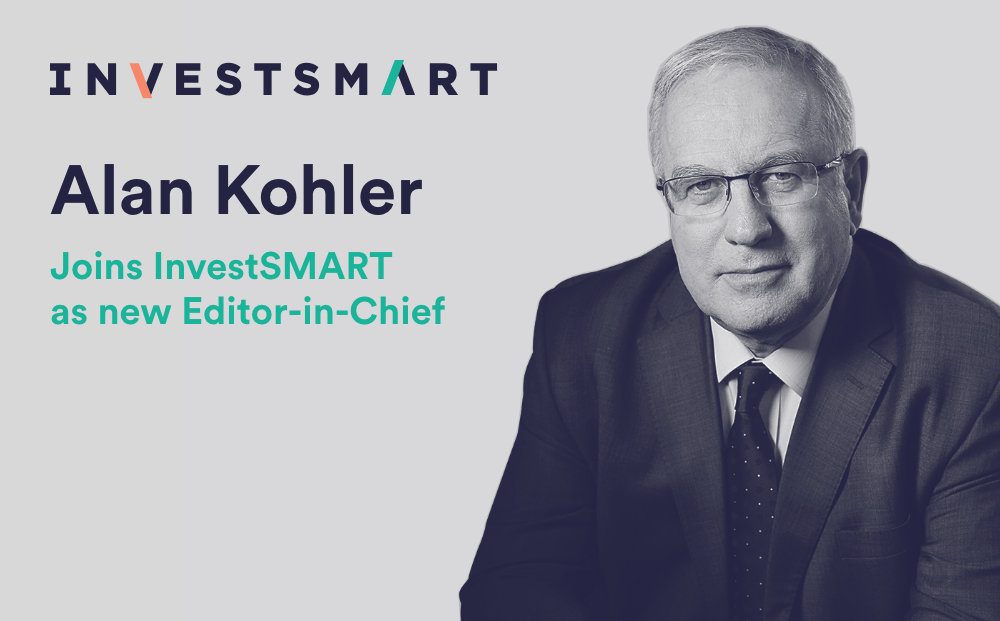Alan Kohler, one of the most esteemed financial journalists, was rather unimpressed with ETFs in 2017. In an article in The Australian titled “ETFs turn stockmarket into the ultimate Ponzi scheme”, he wrote:
“When the history of the next stockmarket crash is written, ETFs are likely to figure prominently… ETFs and index funds show that size begets size: money goes to the largest companies, simply because they are large, which makes them still larger, by market cap, and attracts still more funds — rather like a Ponzi scheme.”
But now Alan Kohler is back, helping to list, promote and personally invest in an ETF.
Working with Sydney-based finance group InvestSMART, Mr Kohler is helping list the InvestSMART Ethical Share Fund (Managed Fund) (INES). The ETF will be managed day-in-day-out by Nathan Bell who manages other funds for the group.
INES starts with the ASX 300 then applies a negative ESG screen removing companies that are “widely agreed to be unethical”, the product disclosure statement says. The negative screen is very cookie cutter and excludes companies in gambling, porn, booze, tobacco, weapons, payday lending and pureplay coal miners.
The fund’s managers then take a broad-based quality-cum-value approach to picking stocks. (Up to 10 – 35 at a time). The PDS doesn’t give away too much about how this is done, only to mention that INES will look at earnings quality relative to price.
The maximum exposure to any one share will be 15%; the maximum exposure to cash will be 30%, the PDS says. The fund charges 0.97%.
Analysis – some question marks
Mr Kohler has been unkind in his writing on ETFs. But what annoys him is not ETFs per se -- but market weighted portfolios, the trend towards which ETFs exemplify. This from another one of his catalogues: “Allocating capital according to the size of the company, not its return on equity, is a form socialism.”
In a normal situation these sorts of statements may run like a misunderstanding of what an index is. (An index just measures the weighted average performance of every security in a market. By extension, it also measures the performance of every active manager in that market.) But now that Mr Kohler appears to work with an active fund manager, these types of statements are less interesting.
Beyond the messaging, INES has some ‘question marks’ as well.
INES uses internal market making. (ETF Stream has reported on this at length in the past.) This is where the fund itself makes the market for an ETF. There is no creation-redemption mechanism, nor are there external counterparties providing liquidity. This leads to potential conflicts of interests. From INES’ PDS:
“[InvestSMART] acts as market maker to [INES]. A conflict might arise between [INES] and investors buying or selling Units from [INES] on ASX Trade due to [INES] desire to benefit from its market making activities. A conflict might also arise due to the fact that [InvestSMART] and the Investment Manager of [INES] are related and [InvestSMART] could use its market making activities to influence the perception of the performance of the [InvestSMART] and the Investment Manager.”
This legalese is a way of spelling out two problems:
1. The fund may have reduced incentive to market-make at NAV;
2. The fund may misprice the ETF in such a way to give the impression it is performing better than it is.
InvestSMART say they have policies to deal with these conflicts of interest. But investors more accustomed to creation-redemption and independent market makers might take some convincing.
The final issue is the fee – 0.97% a year. From what we’ve seen, the asset-weighted average fee for Aussie equity ETFs is 0.19%. The BetaShares Australian Sustainability Leaders ETF (FAIR), a market-weighted ethical fund with comparable investing mission, charges only 0.49%.
Mr Kohler once said of financial advisers: “Most people don't understand percentages and compound interest, and think that 1 per cent is not much. The result is a fee structure that is fundamentally higher than it should be.”
Is the same not true for ETF providers?



